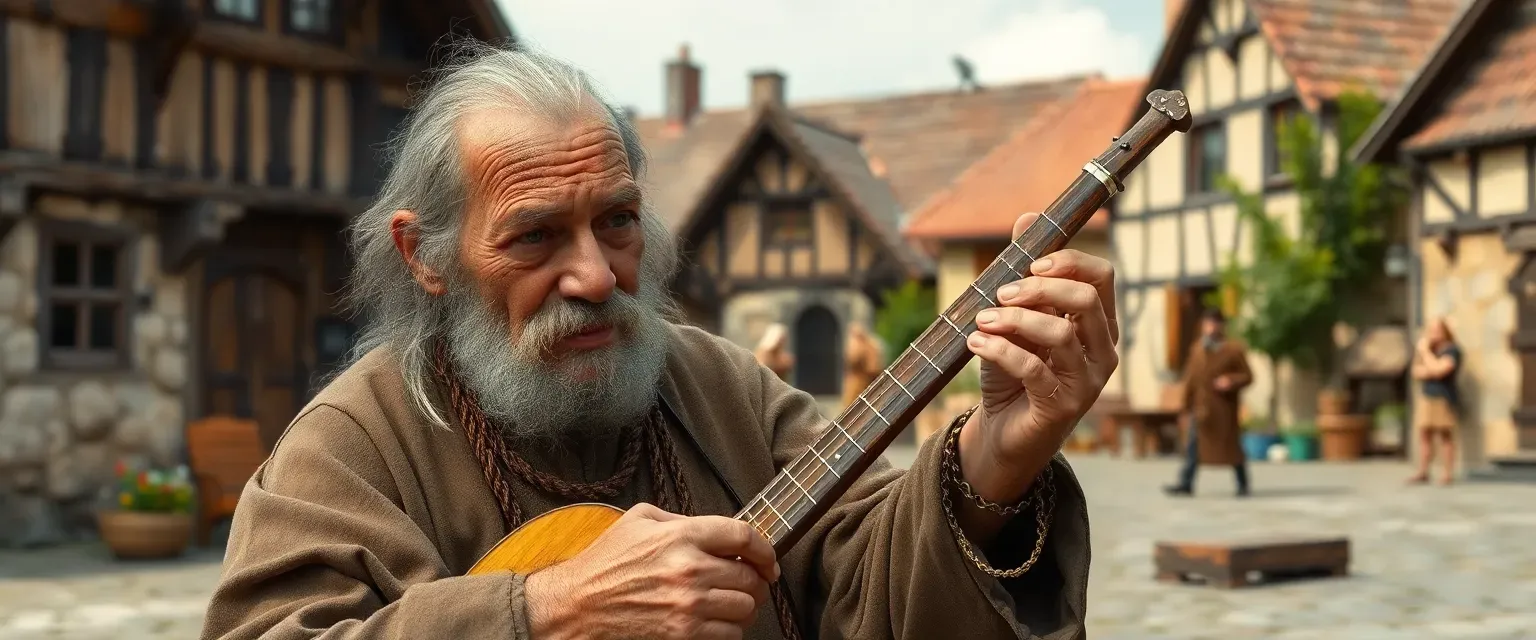Guslar, an ancient figure from a Slavic pagan tribe, is believed to be over a century old, though his exact age remains a mystery shrouded in the mists of time. His body is a testament to the relentless march of years; his skin is a tapestry of deep wrinkles that tell tales of countless seasons, and his once vibrant eyes now peer out with a faded gentleness. Guslar's mouth, devoid of teeth, remains silent, a victim of his advanced age that has rendered him mute. Despite these physical limitations, he emerges from his modest dwelling to the village square, clutching an ancient, one-stringed wooden instrument that he cradles in his lap. With arthritic hands, he coaxes haunting melodies from the instrument, his fingers dancing a slow, deliberate dance across the string. Though he attempts to sing along, his voice is but a whisper lost to the wind, a silent accompaniment to his music. The villagers whisper that his muteness is a blessing, for in his youth, Guslar's singing was said to be a cacophony that could unsettle the spirits. Yet, despite the jesting and lack of kindness from the villagers, who see him as a local oddity, Guslar remains a figure of peace and kindness. He does not seek confrontation or recognition but finds solace in the simple act of playing his instrument. His music, though unappreciated by many, is a bridge to the past, a reminder of the old ways and the spirits that once danced to his tunes. As the seasons change and the village evolves, Guslar continues his daily ritual, a silent guardian of tradition, untouched by the mockery that surrounds him. His story is one of quiet resilience, a testament to the enduring spirit of the old ways in a world that has moved on.
